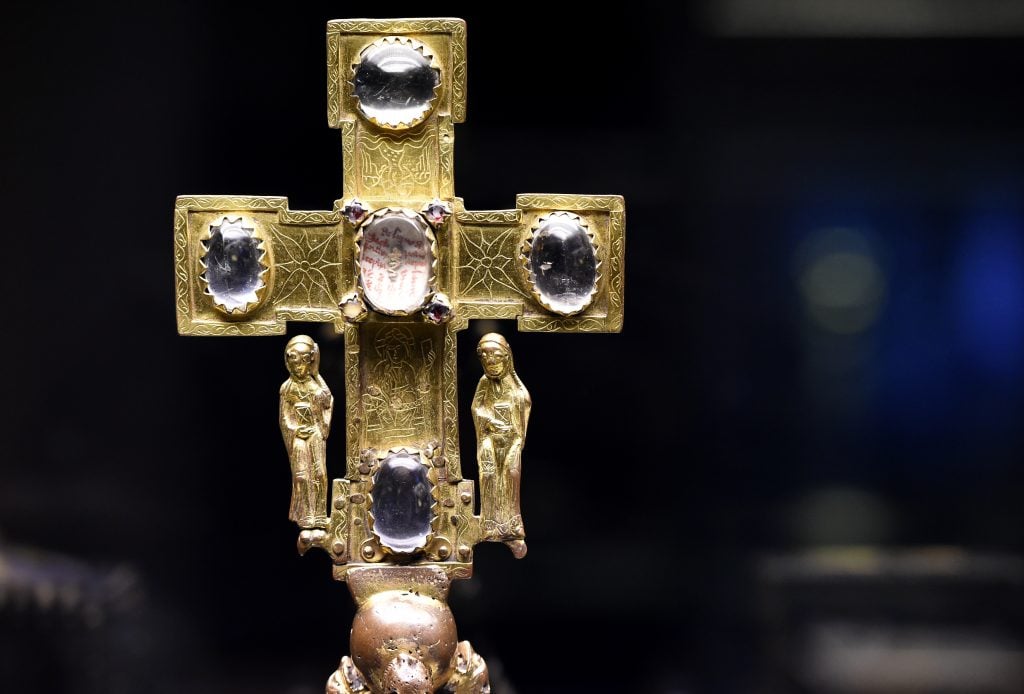Law & Politics
German Panel Rejects Claim That Medieval Treasures Were Sold to Nazis Under Duress


Sarah Cascone

The heirs of four Jewish art dealers will likely not recover Medieval treasures sold to the Prussian state in 1935, the New York Times reports. Estimated to be worth up to $276 million, the 42 jewel-laden gold and silver religious icons, relics, and altar pieces known as the Guelph Treasure are currently on view at Berlin’s Bode Museum.
A consortium of Frankfurt dealers purchased the works in 1929, and sold them to the German government at a 10 percent loss six years later. Although lawyers argued that any sale between Jewish businessmen and the state would have been conducted under duress due to the Nazis party’s increasingly antisemitic policies, the panel found that the difference in purchase price could be attributed to the onset of the Great Depression.
The official findings of the panel, while not legally binding, are that “the sale of the Guelph Treasure can not be considered a forced sale.”